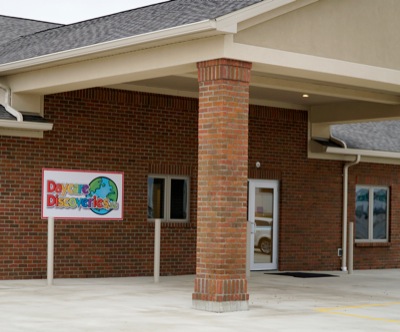Wednesday, December 14th, 2016
Officials OK revolving loans for bars
By William Kincaid
CELINA - Mercer County commissioners on Tuesday approved the release of $75,000 in county revolving loans to local residents to keep open a restaurant/bar in Burkettsville and another in Fort Recovery.
The commissioners' action, which is contingent upon state approval, came after a public hearing attended by only Mercer County Community Development Director Jared Ebbing and the media. Prior to the hearing, the county revolving loan commitee, made up of bankers and other local representatives, recommended approval of the two applications.
Ebbing called the two businesses in question "mainstays in both of those villages."
They "are restaurants first, not bars," he said in reference to a county resident who last week spoke against lending funds to bars, citing the destructive effects of drinking.
Ebbing also stressed the money comes from state funds, not the county's general fund.
Chris and Tonya Siefring of Burkettsville want to purchase 5 Brothers Bar & Grill, 123 W. Main St., Burkettsville. Its primary signatory is Michael Rosenbeck. The couple wants to operate the venue as Gilbert Station Bar and Grill.
The total project cost is $60,000, including the purchase of the land, building and equipment.
The Siefrings have applied for a $25,000 county revolving loan fund bearing 3 percent fixed interest over 20 years. They want to combine it with $3,000 in equity and $32,000 from a private lender to make the transaction, according to Ebbing.
They agree to create one full-time equivalent job that will be offered or made available to a low- to moderate-income person.
Also, Tom Will of Fort Recovery wants to purchase Thienman's Sports Bar and Grill, 107 N. Wayne St., Fort Recovery, from Michael and Susan Thien, Fort Recovery. Will wants to operate the venue as Brick Street Tavern.
The total project cost is $202,150. It includes the purchase of the land, building and equipment. Will has applied for a $50,000 county revolving loan bearing 3 percent fixed-interest over 20 years. He wants to combine it with $8,950 in equity and $143,200 from a private lender for the transaction, according to Ebbing.
Will agrees to create two full-time equivalent jobs that will be offered or made available to low- to moderate-income people.
Ebbing said both businesses draw large crowds for breakfast and/or lunch.
"They obviously do serve beverages there, like most restaurants," he said. "We've done other loans for restaurants in the past."
The county can loan $25,000 for each full-time equivalent job a company creates or retains.
"These are state-originated funds that came in as a form of a grant," he said.
The revolving loan program started 26 years ago and is funded by grants from the U.S. Department of Housing and Urban Development that are funneled through the state. The local economic development office reviews, approves and distributes the funding. The state requires public hearings for each application.
The state could take back the money if the county didn't process revolving loans, Ebbing said, opining it's better to reinvest it locally than to see it go elsewhere in Ohio.
"We're still by far and away the most active revolving loan fund in the state," he said.
It's also one of the most successful programs, Ebbing added, noting there's been only one default in the last eight years, which occurred before he was in office.
Ebbing said a couple of big project loans were paid off this year, resulting in a revolving loan balance of more than $1 million. The county collects about $40,000 a month in revolving loan payments.
"All the businesses are up to date on their payments, again, so we're using that money that's coming in to revolve it back around," he said.
The low-interest loans can be used to buy fixed assets such as land, buildings, machinery and equipment and as working capital to expand an existing or start-up business. Except for local infrastructure needs, the loans are repaid to the fund with interest to provide funding for future loans.



